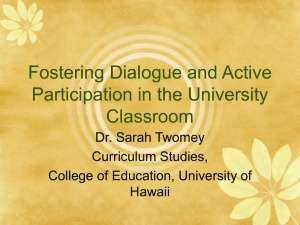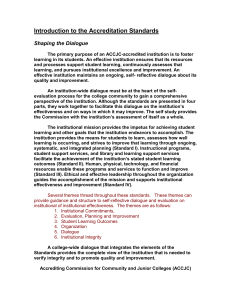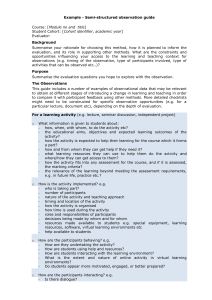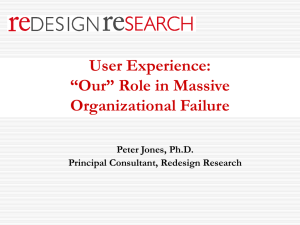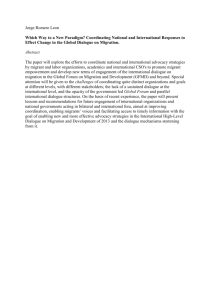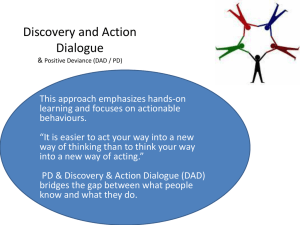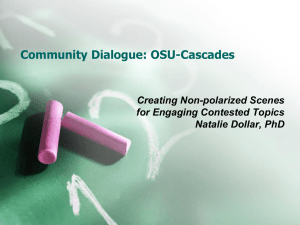What*s a Dialogue Day - York St John University
advertisement
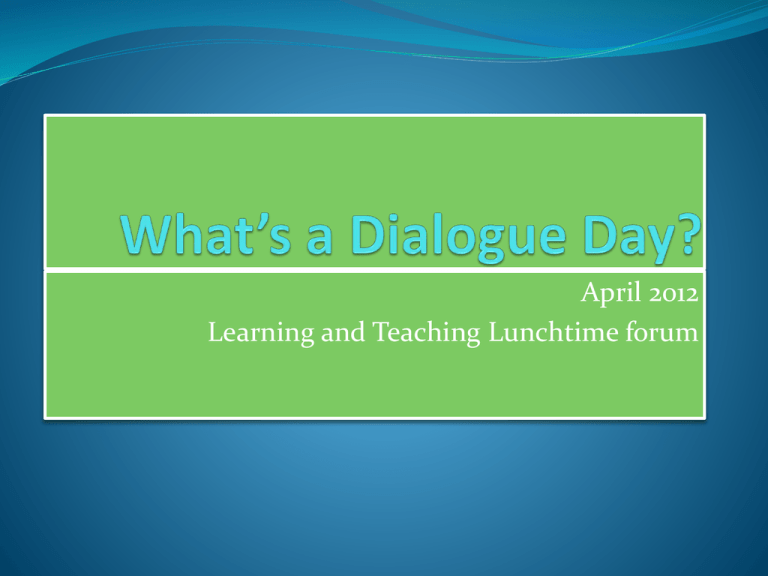
April 2012 Learning and Teaching Lunchtime forum Why Dialogue Days? History at YSJU The student engagement literature Student engagement is concerned with the interaction between the time, effort and other relevant resources invested by both students and their institutions intended to optimise the student experience and enhance the learning outcomes and development of students and the performance, and reputation of the institution. (HEFCE 2008 cited in Trowler 2010 ) correlations between student involvement in a subset of ‘educationally purposive activities’, and positive outcomes of student success and development, including satisfaction, persistence, academic achievement and social engagement (Trowler 2010) Activity: Lets talk about Dialogue. Dialogue and the literature Bohm (1996) “stream of meaning flowing among and through us and between us” … and that this shared meaning is the glue or cement that holds people and societies together” Shor and Freire (1987) “Dialogue is a moment where humans meet and reflect on their reality as they make and remake it. Lyle (2008) suggests that Bahktin’s concepts of dialogical meaning making allow the learner to play an active role in developing a personally constructed understanding of the curriculum through a process of dialogic interchange Relational aspects of feedback Evaluating dialogue days What the students say David a 2nd year theatre student. “I felt relieved, had lots of things burning up inside me that I just wanted to get off my chest” “At the end of the day we are all here to mix and mingle and make work together. Everyone is an adult and should be treated in that way.” Siobhan 1st year physiotherapy “We have to meet a deadline getting the work in to tutors at a certain time so its there is an expectation of getting it back on time.” “It was good to be able to say what you think. The students were on transmit and the staff were on receive” Michael 3rd year Theatre “Too many people go to university get a degree and not do anything with it and this showed if I do really want something it can happen”. Themes, places, activities Where What How Activity: Explore assessment examples Challenges? The main challenge so far has been engaging the unengaged Getting some staff to “dialogue” and leave teacher mode in the classroom Activity: What do you think the other challenges are and how might you mitigate against them? Designing your own dialogue day What would you do Activity Decide on your theme and aims of the day What do you hope to gain implicitly/explicitly Okay so what are your activities? How are you going to create the right atmosphere? Where are you going to hold it How are you going to convince the staff and the students How are you going to close the loop Closing the loop How are we going to tell the students the outcome Should we be involving the students in the process in that the outcome is two way. How would you close the loop? References Bohm D (1996)”On Dialogue”, Routledge Classics Sue Lyle (2008): Dialogic Teaching: Discussing Theoretical Contexts and Reviewing Evidence from Classroom Practice, Language and Education, 22:3, 222-240, Shor and Freire (1987) What is the dialogical method of teaching, Jorunal of Education, vol169, no 3, p11 Trowler V (2010)Student Engagement Literature review , Higher education Academy http://www.heacademy.ac.uk/assets/documents/studente ngagement/StudentEngagementLiteratureReview.pdf
